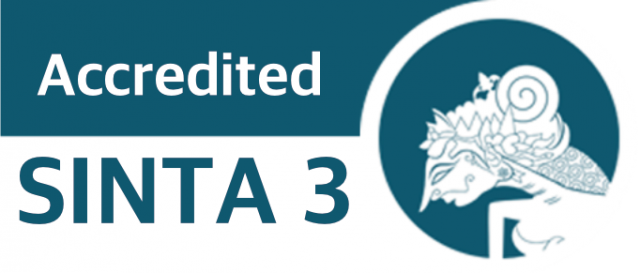Pergulatan Identitas Diaspora Komunitas Toraja- Kristen di Tawau Malaysia
DOI:
https://doi.org/10.24114/antro.v10i1.68928Keywords:
Diaspora, identity struggle, Toraja, TawauAbstract
This research examines the identity struggles of the Toraja diaspora in Sabah Malaysia. The Toraja diaspora in Malaysia is a minority group in Tawau City, Sabah Malaysia. Malaysia as a Muslim-majority country imposes many Muslim rules. Therefore, the author examines how the minority Toraja diaspora community grapples with its identity as a Toraja tribe from Indonesia and Christian in Tawau City. This research uses qualitative research methods through field and literature studies using the New Ethnography perspective. The author uses Stuart Hall's concept of cultural identity to show how identity formation occurs because of two things. First, there is an interpretation of the same history and culture. Second, how the community negotiates with other groups. The author found that the Torajans have a community base in the Anglican and Basel Churches in Tawau. The Anglican Church is the first church that the Toraja community belongs to, but does not accept when Torajans perform rites at death ceremonies in this case badong because it is considered an idol. Meanwhile, the Basel Church opens space for Torajans to perform their cultural rites such as mantunu and ma' badong. Torajans also use Torajan symbols in worship as an image of cultural roots. The similarities and historical roots sparked the Toraja people in Tawau to join the Anglican Church and the Basel Church.References
Bauböck, Rainer, and Thomas Faist, eds.
2010. Diaspora and Transnationalism: Concepts, Theories and Methods.
Amsterdam: Amsterdam University Press.
Bigalke, Terance William. 2019. Sejarah sosial Tana Toraja. Translated by M. Yuanda Zara. Cetakan kedua.
Yogyakarta: Penerbit Ombak.
Bumbungan, Apriadi. 2019. “Kompleksitas Narasi Nama Kampung Rama Di Kota Makassar.” Jakarta, Indonesia: Universitas Indonesia.
Hall, Stuart, David Morley, and Stuart Hall.
2018. Essential Essays. Stuart Hall, Selected Writings. Durham: Duke University Press.
Hana, Naufanita, Raden Maisa Yudono, and Ani Soetjipto. 2018. “ANALISIS WACANA DIASPORA INDONESIA: TINJAUAN KONSEPTUAL DALAM
HUBUNGAN INTERNASIONAL.” Jurnal
Kajian Wilayah 9: 90–108.
Jong, Edwin Bernardus Paulus de. 2013. Making a Living between Crises and Ceremonies in Tana Toraja: The Practice of Everyday Life of a South Sulawesi Highland Community in Indonesia. Verhandelingen van Het Koninklijk Instituut Voor Taal-, Land En Volkenkunde, volume 284. Leiden: Brill.
L. Parani, Julianti. 2015. Perantauan Bugis Abad Ke-18. Jakarta: Arsip Nasional Republik Indonesia.
Oktafiani, Irin. 2019. “The Meaning of
Diasporic Identity: A Case of
Indonesian Community Overseas.” Journal of Indonesian Social Sciences and Humanities 9, no. 2 (December):
147–56.
https://doi.org/10.14203/jissh.v9i2. 154.
Saukko, Paula. 2003. Doing Research in Cultural Studies: An Introduction to Classical and New Methodological Approaches. Introducing Qualitative Methods. London; Thousand Oaks, Calif: SAGE.
Sirua Sarapang, Simon. 2017. “BUGINESE MIGRATION: ADAPTABILITY IN MELAYU AND SOCIAL-ECONOMIC STABILITY (SOCIAL-ECONOMIC
HISTORICAL REVIEW).” Indonesina Platform Kebudayaan (blog). 2017. https://kebudayaan.kemdikbud.go.id
/bpnbsulsel/migrasi-orang-bugis- adaptasi-kemelayuan- danstabilitassosialekonomi-tinjauan- sejarah-sosial-ekonomi/.
Sunarti, Linda, Raisye Soleh Haghia, and Noor Fatia Lastika Sari. 2022. “The Bugis Diaspora in Malaysia: A Quest for Cultural Identity on Collective Memories through Social Media.” Cogent Arts & Humanities 9, no. 1 (December): 2066765.
https://doi.org/10.1080/23311983.2 022.2066765.
Suryanti, Suryanti, Ihsan Mz, and St
Rahmah. 2020. “Sejarah Diaspora Suku Bugis-Makassar Di Kalimantan Tengah.” Rihlah: Jurnal Sejarah Dan Kebudayaan 8, no. 2 (November): 100. https://doi.org/10.24252/rihlah.v8i2
.15707.
Udasmoro, Wening, Setiadi Setiadi, and Aprillia Firmonasari. 2022. “Between Memory and Trajectory: Gendered Literary Narratives of Javanese Diaspora in New Caledonia.” International Journal of Interreligious and Intercultural Studies 5, no. 1
(June): 74–87.
https://doi.org/10.32795/ijiis.vol5.is s1.2022.2851.
Volkman, Toby Alice. 1984. “Great Performances: Toraja Cultural Identity in the 1970s.” American Ethnologist 11, no. 1 (February): 152–
69.
https://doi.org/10.1525/ae.1984.11. 1.02a00090.
———. 1985. Feasts of Honor: Ritual and Change in the Toraja Highlands.
Illinois Studies in Anthropology, no.
16. Urbana: University of Illinois Press.
———. 1990. “Visions and Revisions:
Toraja Culture and the Tourist Gaze.”
American Ethnologist 17, no. 1
(February): 91–110. https://doi.org/10.1525/ae.1990.17. 1.02a00060.
Wahlbeck, Östen. 2002. “The Concept of Diaspora as an Analytical Tool in the Study of Refugee Communities.”
Journal of Ethnic and Migration Studies 28, no. 2 (April): 221–38. https://doi.org/10.1080/136918302 20124305
Downloads
Published
How to Cite
Issue
Section
License

This work is licensed under a Creative Commons Attribution 4.0 International License.

This work is licensed under a Creative Commons Attribution 4.0 International License
Authors who publish with this journal agree to the following terms:
- Authors retain copyright and grant the journal right of first publication with the work simultaneously licensed under Creative Commons Attribution 4.0 International License that allows others to share the work with an acknowledgement of the work's authorship and initial publication in this journal.
- Authors are able to enter into separate, additional contractual arrangements for the non-exclusive distribution of the journal's published version of the work (e.g., post it to an institutional repository or publish it in a book), with an acknowledgement of its initial publication in this journal.Penulis.
- Authors are permitted and encouraged to post their work online (e.g., in institutional repositories or on their website) prior to and during the submission process, as it can lead to productive exchanges, as well as earlier and greater citation of published work (Refer to The Effect of Open Access).


